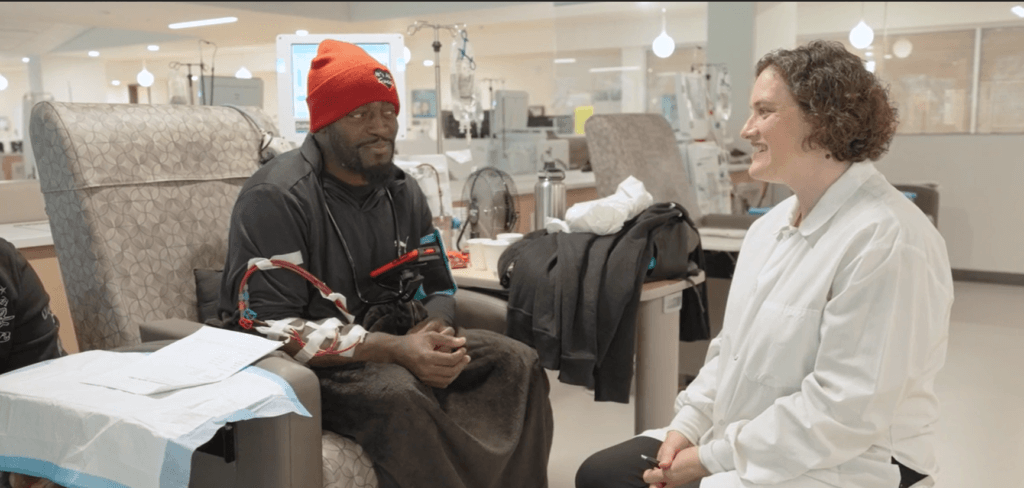
Our commitment to equitable care
We envision of a world where kidney disease no longer inhibits people from living their best lives and believe this vision can only be achieved through inclusive, equitable care.
Our social work team fosters equitable, whole-person care for all
Chronic illness can overshadow a patient’s identity, causing depression, anxiety, and other mental health challenges. Using trauma-informed care as a guide, our social workers partner with patients and families to address issues that arise, many of which are linked to socio-economic status and race.
Our social workers are integral to the high-quality, person-centered care we are committed to providing. They are key members of our interdisciplinary care teams working alongside physicians, nurses, and dietitians. Their work supports our patients’ mental wellbeing and quality of life. Social workers meet regularly with patients, providing short-term interventions and referrals to community organizations as needed.
Support can include
- advocating on patient’s behalf for food or housing assistance
- ensuring patients have reliable transportation to and from treatment
- helping someone new to the country or someone who speaks a different language other than English connect to local community and cultural organizations
- removing communications barriers through the use of medical interpreters to ensure patients receive information critical to their care
- helping patients apply for financial and medical benefits.

Equitable care can mean helping our patients get treatment
Transportation to and home from treatment is a key component to patient health
- Waiting for approval of disability transportation services
- Vehicles are not wheelchair accessible
- A service does not show up for a scheduled ride
Amy Postal, social worker at Northwest Kidney Centers explains the importance of reliable transportation for our patients.